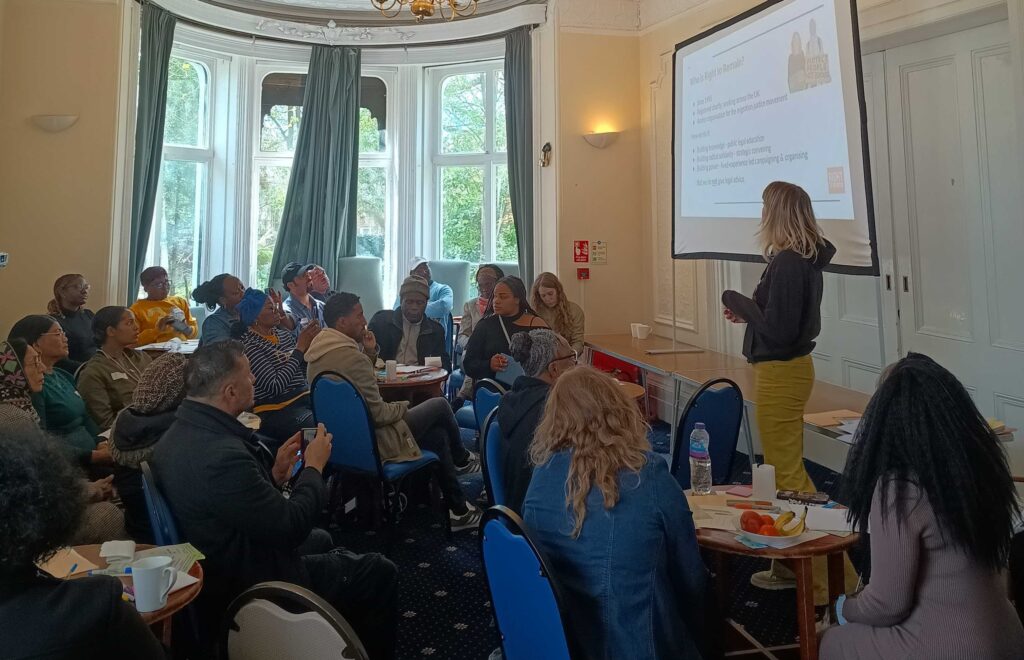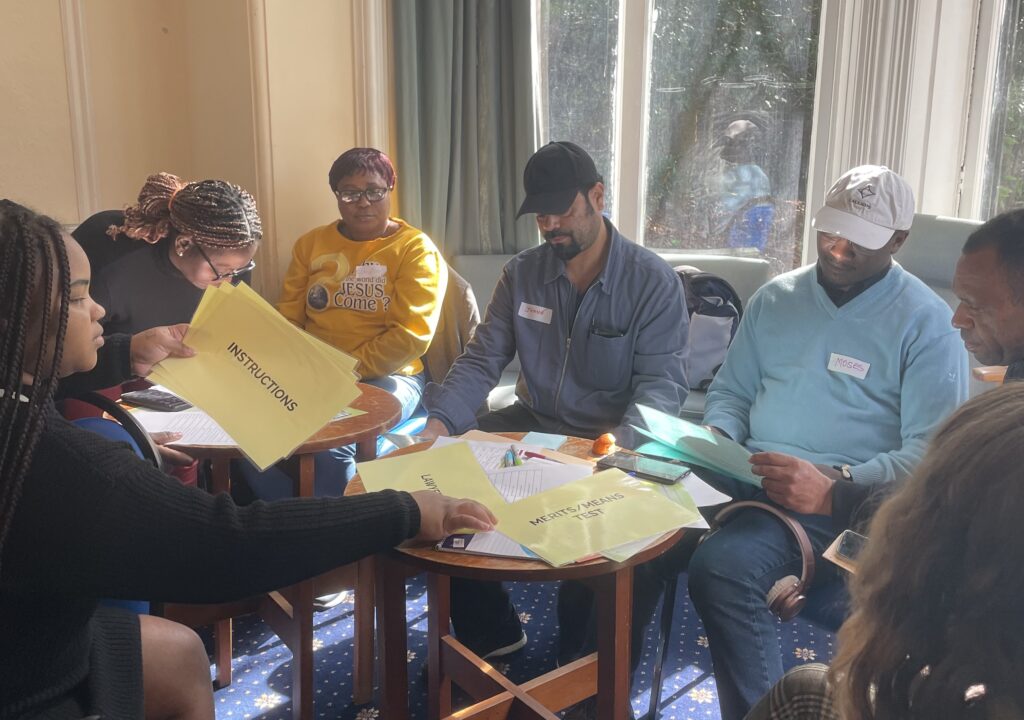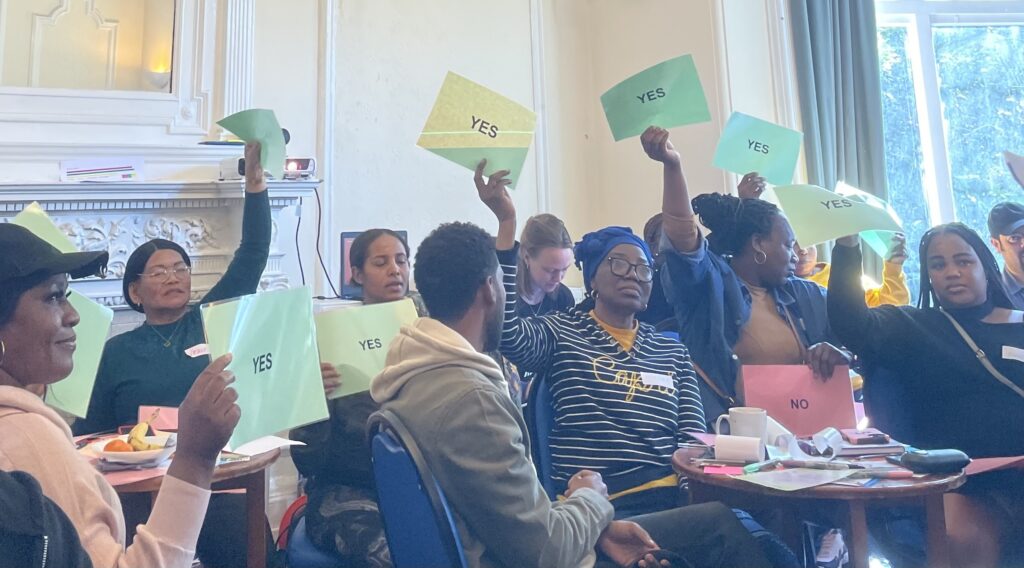
On 27 March 2025, Right to Remain visited South London Refugee Association (SLRA), to join an open meeting on Access to Justice and Legal Aid, organised by the Hope and Justice Collective. We were invited to join this meeting by Bettina from SLRA and Frances from Migrants Organise.
We were invited to deliver a workshop on the Right to Remain Toolkit, and how to work with a lawyer. Keep reading to find out what happened on the day!
Who are the Hope and Justice Collective?
The Hope and Justice Collective is a group of campaigners primarily based in London who are affected by the lack of access to good-quality legal aid for migrants across the UK. The focus of the Collective is to improve awareness of and access to legal aid for migrants, through outreach, community meetings, workshops and campaigning.
This open meeting was called because it is increasingly difficult for people across the UK to access legal advice. The government’s hostile anti-immigrant policies leave many people in our communities reliant on legal aid to stay safe, but the legal aid system has been chronically under-funded and it is now almost impossible to access. Currently, 57% of asylum seekers in the UK cannot access a legal aid lawyer, and there is no legal aid available for many types of immigration applications. Every day we are reminded of the many problems this creates for individuals and their communities.
What happened in the Open Meeting?
Hope and Justice organisers Moses and Nanou began by setting the scene, explaining that there is a lack of legal aid lawyers and funding for immigration legal aid services. Frances and Bettina outlined the purpose of the meeting, and the intention behind the Hope and Justice Collective.
Bettina (SLRA) also invited participants to introduce themselves in a 121 with their neighbour. The purpose of these 121s was to learn about another person’s experience with legal aid, and accessing a lawyer.
After these introductory exercises, Right to Remain’s Legal Education Officer Leah introduced the Toolkit, emphasising the 5 things to know when sharing the Toolkit:
- Phone friendly
- Available in many languages
- Every page has an Action Section with practical tips
- Search bars to find what you are looking for
- We have a YouTube channel
Leah then led an interactive exercise on how to use the Toolkit. This exercise is designed to give participants confidence to use the search bars in the Toolkit to find information on specific topics, finding information that is most relevant to you or the person you are supporting. Using the search bars, participants searched for information on specific topics, such as ‘substantive interview’, ‘evidence’ or ‘permission to work’.
Most people in the room had not heard of the Right to Remain Toolkit, so it was very valuable to be able to introduce the resource in this setting. Many people commented on the huge amount of information that the Toolkit contains.
The second part of the workshop was around finding and working with a good lawyer. This was an adapted version of our workshop on Lawyers and Evidence, which you can read more about here.
In this section of the workshop, we included a number of interactive exercises, such as :
- Working out key definitions in groups, such as, “What is a lawyer?”, “What is Legal Aid?”, and “What are the merits and means tests?”
- Green and red flags: what a good lawyer should / not do for you
- How to find a lawyer, and discussion about what to do if you can’t find a lawyer


Feedback indicated that people found these exercises useful to be able to recognise the difference between a good and a bad lawyer. It was really heartening to see the discussion that these exercises inspired, and how many ideas it sparked. To close, we thought about actions going forward to raise awareness around the lack of access to legal aid. Suggestions included:
- Creating and sharing engaging social media posts to share in your community
- Sharing trusted information on whatsapp
- Organising a peaceful march
- Writing letters to MPs
- Speaking to journalists
Thank you to the Hope and Justice Collective for inviting us to run this workshop! It was a really powerful opportunity to come together, share stories, tips and learnings, and think together about how to take action on access to justice.













Discussion: